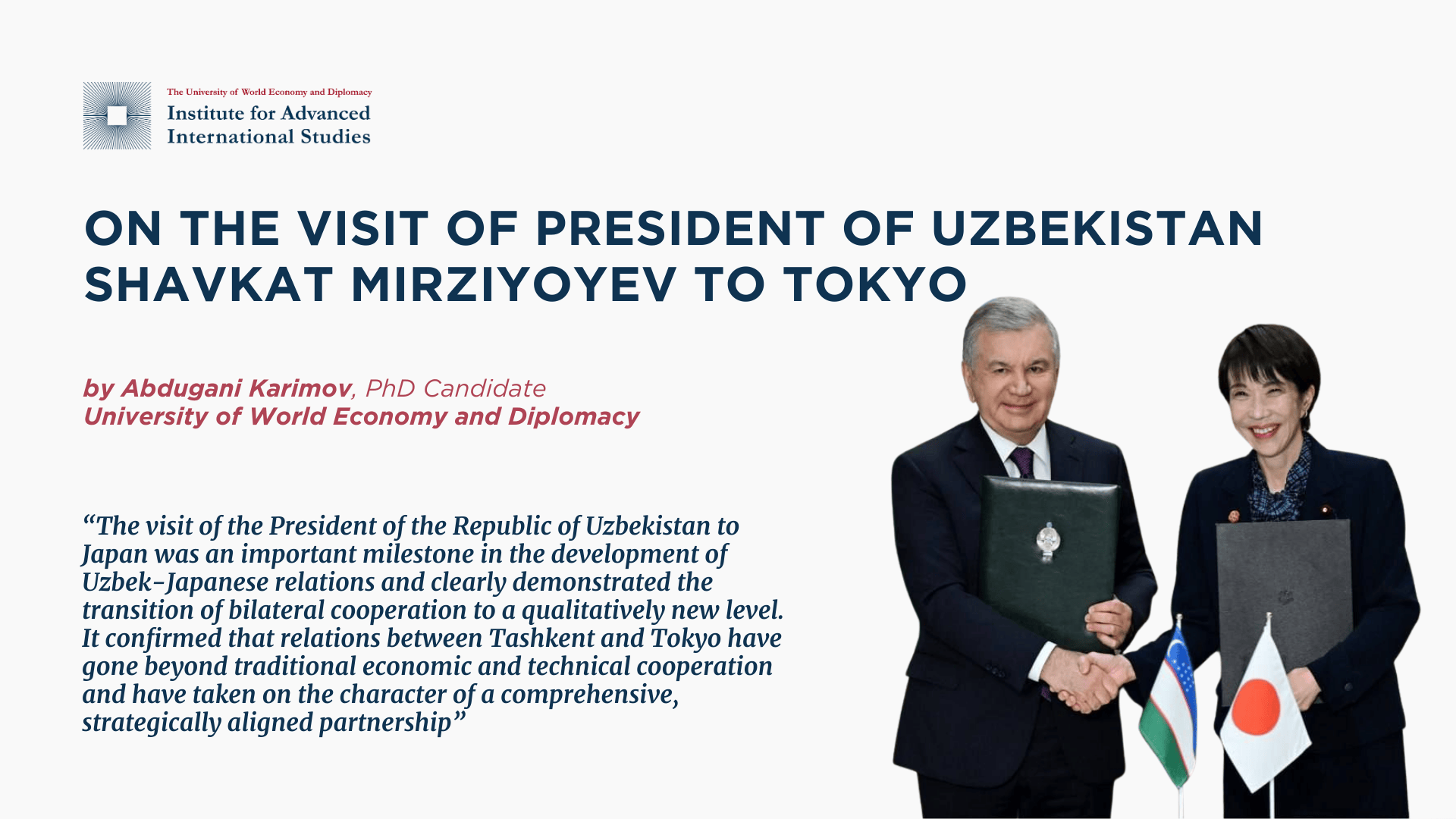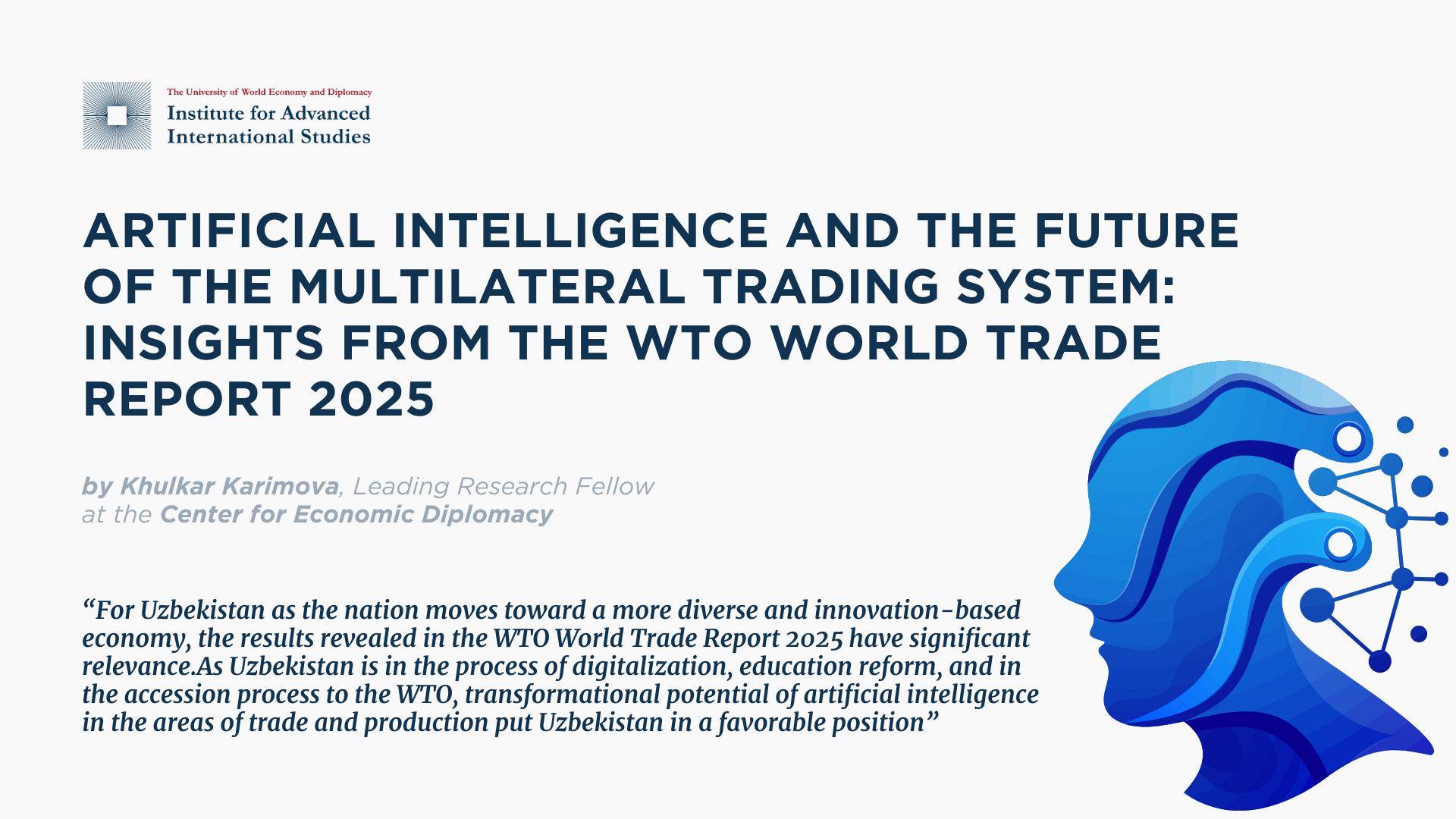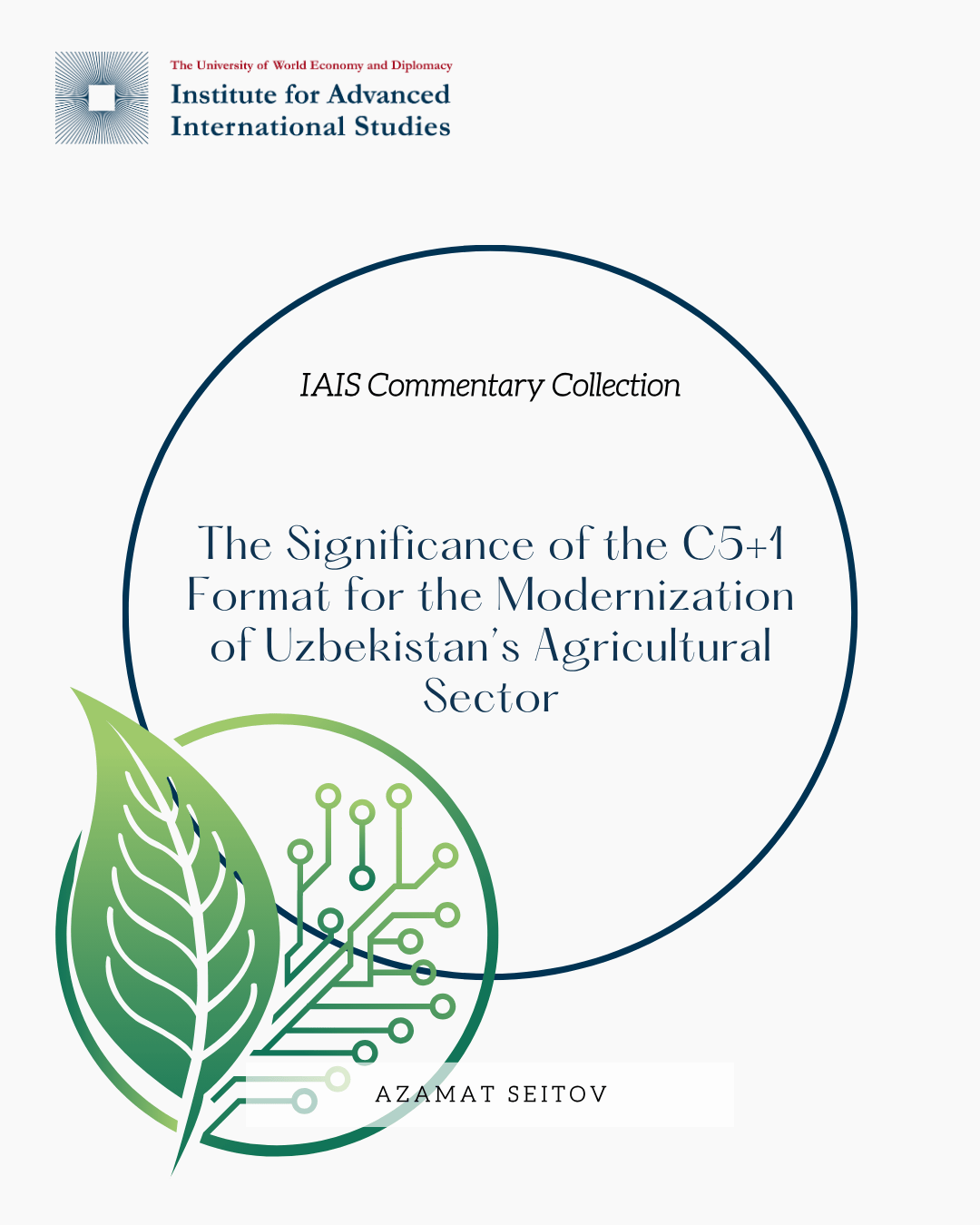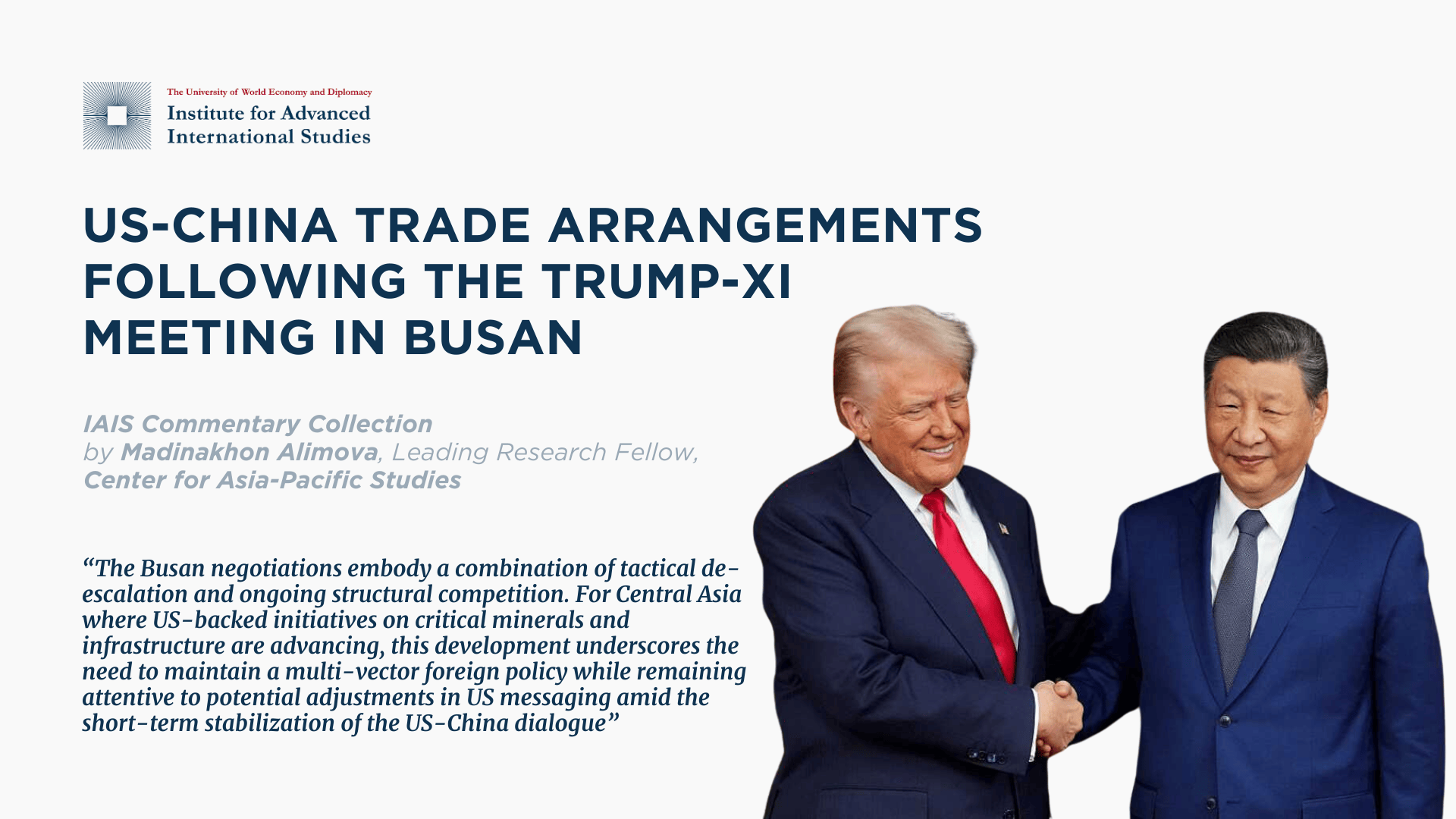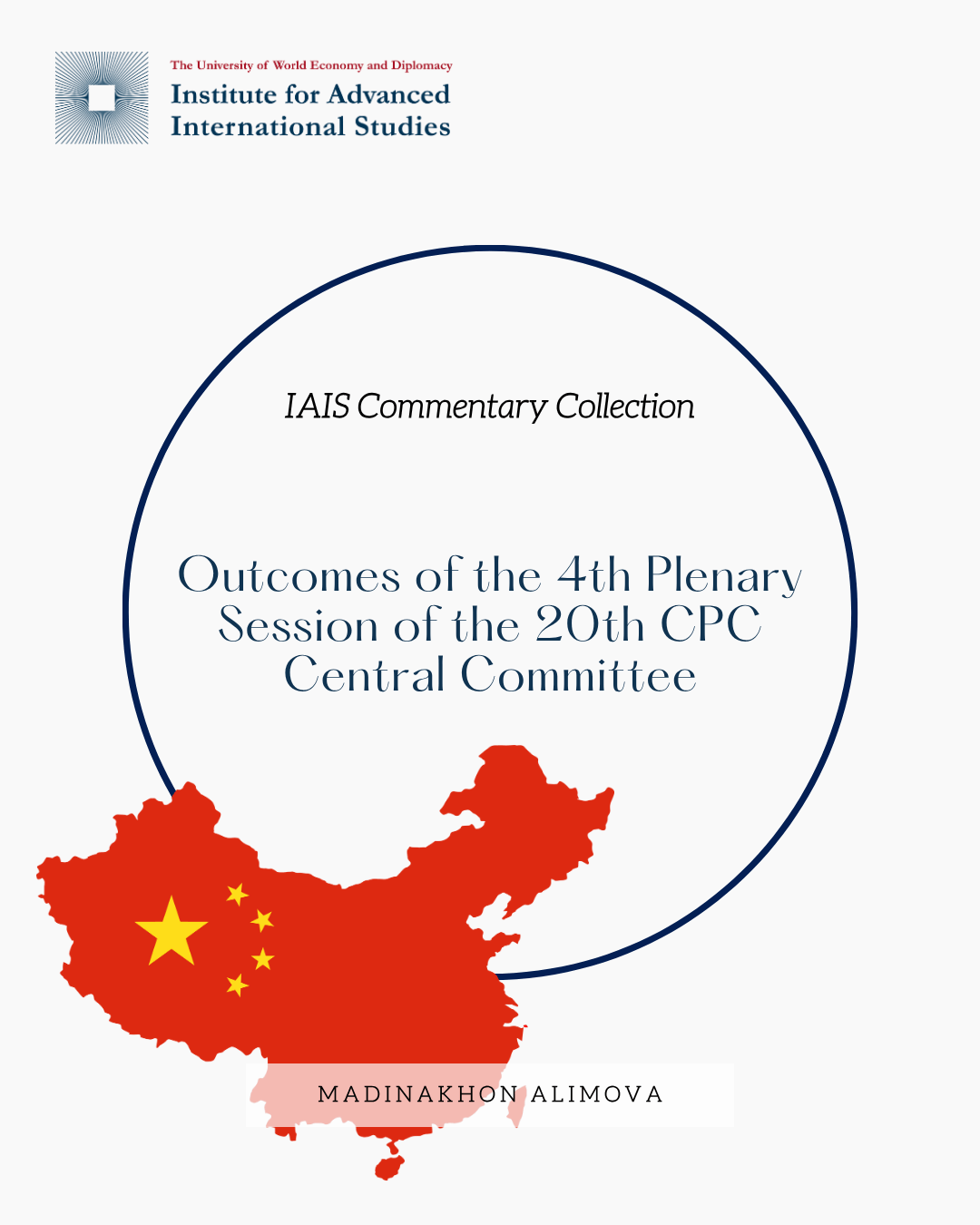by Abdugani Karimov, PhD Candidate at the University of World Economy and Diplomacy
Uzbek-Japanese relations at the present stage are among the most stable and rapidly developing relations of the Republic of Uzbekistan. Japan was one of the first developed countries to recognize Uzbekistan's independence: diplomatic relations between the two countries were established on January 26, 1992. Since then, bilateral dialogue has continuously developed elements of economic, political, and social interaction, leading to long-term relations.
A significant stage in the development of high-level dialogue was Japan's initiation in 2004 of the multilateral format “Central Asia + Japan,” which became the first sustainable mechanism for regular interaction between the countries of Central Asia and Japan. This format allowed Tokyo to simultaneously strengthen ties with the states of the region, and the countries of Central Asia to promote their vision of stability, modernization, and cooperative security in the region.
A significant impetus to the development of Uzbek-Japanese relations was given after 2016, against the backdrop of Shavkat Mirziyoyev's rise to power and the proclamation of a course towards revitalising foreign policy, economic liberalisation and attracting foreign investment. During this period, bilateral dialogue began to gradually transform from a model of predominantly “development assistance” to a partnership format focused on joint modernization, technological progress, and long-term investment.
High-level visits played a special role in strengthening political trust. These included the President of Uzbekistan's state visits to Japan in 2019 and 2022, as well as regular contacts at the level of heads of government and relevant ministries. In this context, the visit of the President of Uzbekistan to Tokyo on December 20, 2025, can be seen not as a one-off diplomatic event, but as a logical continuation of the line of deepening strategic dialogue between the two countries.
Agenda of the visit
The program of the President of the Republic of Uzbekistan's visit to Tokyo was structured as a set of political, economic, and humanitarian events reflecting the strategic nature of bilateral relations and the parties' desire for their further development. The visit included high-level talks, meetings with representatives of key Japanese government institutions, and intensive dialogue with business, financial, and educational structures.
The central event of the visit was high-level talks between the President of Uzbekistan and the Japanese government. These talks focused on the prospects for developing a strategic partnership, expanding political dialogue, and coordinating positions on current international and regional issues. Particular attention was paid to issues of sustainable development, economic modernization, and the role of Uzbekistan as a key Central Asian state for Japan.
During the talks, the parties emphasized their commitment to the principle of regular high-level and senior-level contacts, as well as the need for further institutional strengthening of bilateral cooperation mechanisms.
The talks also highlighted the high degree of political trust between Tashkent and Tokyo, as well as their shared approaches to key international and regional issues, including support for stability and sustainable development in Central Asia. Particular emphasis was placed on the need to institutionalize regular political consultation mechanisms, reflecting the parties' desire to move their cooperation to a more systematic format. During the meeting with Japanese Prime Minister Sanae Takaichi, a number of documents were signed aimed at expanding the strategic partnership in all areas.
Thus, the agreements reached during the negotiations confirmed the high level of political trust between Tashkent and Tokyo and demonstrated the parties' shared approaches to key international and regional issues, including support for stability and sustainable development in Central Asia. It should be emphasized that the signing of documents during the visit was comprehensive in nature and took place both as a result of high-level negotiations and during meetings with the heads of relevant Japanese government agencies and institutions.
As a result of the visit, documents were signed in a wide range of areas, in particular:
First. International political cooperation. It was within this area that the Joint Statement on an Enhanced Strategic Partnership for Future Generations was signed. This is the main political and diplomatic document of the visit, which establishes a new format for bilateral relations, expanding the framework of strategic partnership to cover more areas, from the economy to humanitarian cooperation, the “green economy,” etc. This document emphasizes the regularity of contacts and systematic interaction between the countries.
Second, the economic and investment sphere, which has always been central to relations between the countries. During the negotiations, issues related to the expansion of Japanese investment in the Uzbek economy were discussed, primarily in the areas of energy, transport, and infrastructure. The Japanese side expressed interest in further participation in projects to modernize production facilities, introduce high technologies, and develop logistics corridors connecting Central Asia with external markets. Although this is not a single formal agreement, the Uzbek and Japanese sides agreed on a portfolio of cooperation projects worth about $12 billion and initiatives to create a joint investment platform, a special economic zone in the Samarkand region, and other structures.
Third, the energy agenda, including the development of green energy and energy efficiency. In the context of the global energy transition, Japan is seen by Uzbekistan as one of its key partners in the introduction of new technologies, the development of renewable energy sources, and the modernization of energy infrastructure.
In addition, a number of documents were signed aimed at strengthening cooperation in the economy, energy, transport, and medicine. In a separate ceremony, Uzbekistan and JICA signed agreements that include the development of economic zones, support for education, agriculture, transport infrastructure, and the medical supply system. These documents strengthen the economic bloc of bilateral cooperation and provide resources for the modernization of key industries.
Fourth: the humanitarian and educational bloc. During the meeting with JICA, issues related to the expansion of educational exchanges, personnel training, academic mobility, and cooperation between universities and research centers in the two countries were discussed.
During the discussion, a cooperation agreement was signed with the University of Tsukuba. As part of the package, a memorandum was signed on the creation of a joint center or program with the University of Tsukuba and related intergovernmental agreements in the field of education and scientific exchanges. These documents are aimed at deepening academic cooperation and training modern competitive personnel.
At a separate document exchange ceremony, the parties exchanged memoranda of cooperation between specific ministries, companies, and scientific institutions in the presence of the President and the Japanese Minister of Economy, reflecting the keen interest of the private and public-private sectors in bilateral projects.
The role of Uzbekistan in Central Asia and Japan's participation in regional initiatives were discussed separately as part of the negotiation agenda. It was emphasized that bilateral Uzbek-Japanese relations are the foundation for broader regional cooperation. During the visit, the parties reaffirmed their commitment to developing the “Central Asia + Japan” format, launched in 2004 as a platform for regional dialogue, promoting development and coordinating projects in the fields of infrastructure, ecology, education, and human security.
Conclusion
The visit of the President of the Republic of Uzbekistan to Japan was an important milestone in the development of Uzbek-Japanese relations and clearly demonstrated the transition of bilateral cooperation to a qualitatively new level. It confirmed that relations between Tashkent and Tokyo have gone beyond traditional economic and technical cooperation and have taken on the character of a comprehensive, strategically aligned partnership. Thus, it can be seen that Tokyo is confirming Uzbekistan's status as Japan's priority partner in Central Asia, as well as the desire of the parties to continue developing relations in a bilateral and multilateral format.
The economic and humanitarian components of the visit enhanced its practical significance. Discussions and agreements on new areas of cooperation in investment, technology, education, and training, etc., demonstrate the parties' keen interest in developing bilateral cooperation, and the signing of documents worth more than $12 billion only confirms this fact.
Overall, the results of the visit confirm that Uzbek-Japanese relations are increasingly based not on one-off initiatives, but on a long-term strategy of mutual trust and comprehensive measures.
* The Institute for Advanced International Studies (IAIS) does not take institutional positions on any issues; the views represented herein are those of the author(s) and do not necessarily reflect the views of the IAIS.

